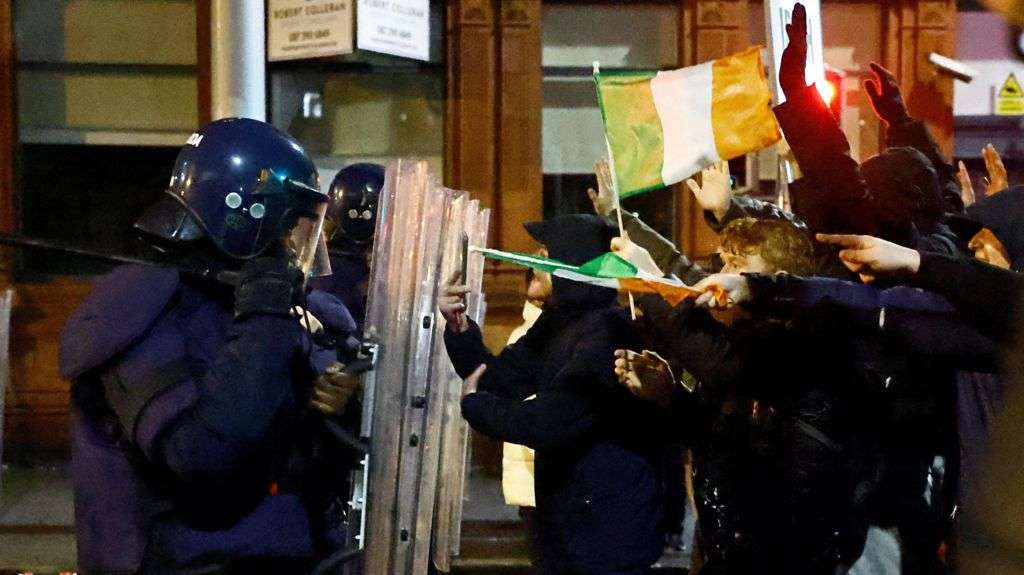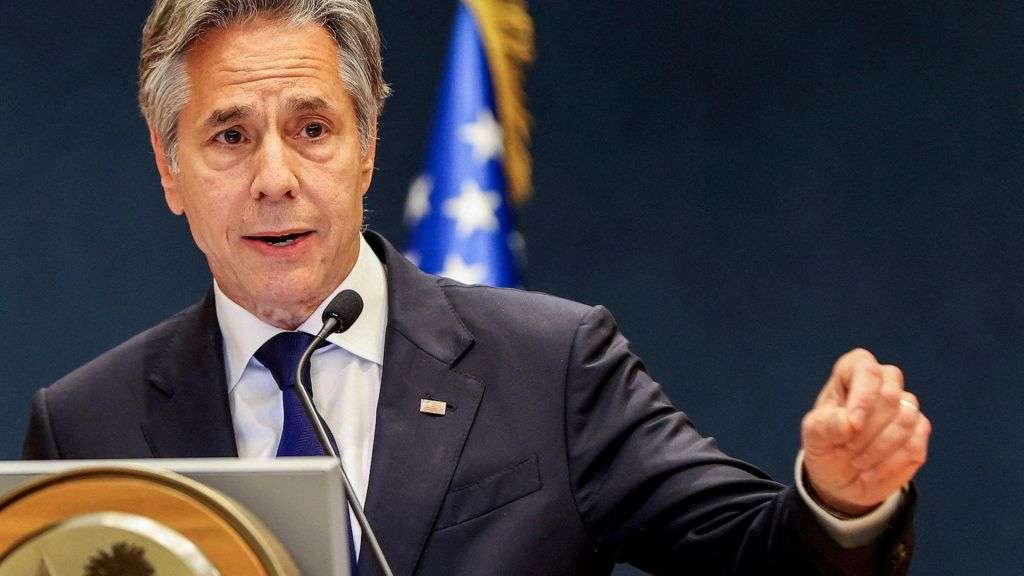A year on from the riots that shook Dublin – have Ireland’s views on immigration changed?
The riots began shortly after three children and a school care assistant were stabbed outside a city centre primary school on 23 November 2023.
It led to a night that would see public transport set alight, shops looted and dozens arrested.
In the year that followed, misinformation on social media has demonised asylum seekers, accommodation centres have been attacked and the government is struggling to get to grips with the issue.
Polls state immigration is far from the front of people's minds in the upcoming Irish general election on 29 November.
But for the first time ever it is a consideration.
The two main issues, housing and healthcare, are both exacerbated by a growing population.
Average house prices are now 10.8% higher than at the height of the previous property boom in April 2007, according to Central Statistics Office (CSO) figures.
The average rent is €1,955 a month nationally - 43% higher than before the outbreak of Covid-19.
Almost 150,000 people immigrated to Ireland in the 12 months to the end of April, according to CSO figures - a 17-year high.
These 149,200 immigrants included 30,000 returning Irish citizens.
Despite asylum seekers not being placed on the same housing lists as Irish citizens, a blame game has begun over whether immigration numbers are too high.
A makeshift tent city sprung up this year near the International Protection Office in Dublin with dozens of tents lining the small area around the building.
The Irish government admitted accommodation could not be provided for all those coming to Ireland.
Robberies, assaults, an outbreak of illness and scabies afflicted the men who were gathered there and the government was criticised for not protecting the most vulnerable.
Rumours and misinformation abounded on social media, falsely accusing the men residing there of crime, or falsifying their refugee status.
Aoife Gallagher, from the Institute of Strategic Dialogue, who monitors far right activity says anti-immigrant sentiment is becoming more organised on social media.
“We've generally seen immigration become a more salient issue in Ireland. I think a lot of that is down to the reaction to the riots,” Ms Gallagher said.
“We saw at least five far right councillors being elected during the local and European elections, all on anti-immigrant tickets."
Ms Gallagher says there has been an escalation of rhetoric and tactics being used to target immigrants.
"We see consistently, a couple of times every week, horrific attacks on migrants," she said.
“We see people standing outside IPAS centres waiting for asylum seekers in order to confront them and intimidate them."
"There's a level of political violence that we haven't seen before,” Ms Gallagher added.
What do the parties say?
Independents are gaining in popularity, up by four points to 20% in the first Irish Times poll of the election.
Many of these are standing on anti-immigration tickets.
Almost all the parties running in the general election agree that Ireland’s current immigration system isn’t working.
Fianna Fáil, Fine Gael and Sinn Féin have all called for big changes.
Sinn Féin said they would introduce a new dedicated immigration management agency.
The agency would “ensure cohesion” around planning, sharing of information, and speedy decision-making.
“The current system doesn’t work for anybody," Sinn Féin leader Mary Lou McDonald said.
"We’ve chaotic management with different bodies and government departments acting independently of one another."
Fine Gael said they would implement a means-tested, income-linked contribution towards state accommodation for asylum seekers.
Meanwhile, Fianna Fáil said they would automatically deem ineligible any applicant who has already been refused an asylum application in another EU member state.
All three have been accused at one time or another of “scapegoating” immigrants.
When the Taoiseach (Irish prime minister) Simon Harris made a link between immigration rates and the levels of homelessness, the Irish Refugee Council described Mr Harris' comments as "problematic and not logical".
'People feel very unsafe'
Dr Ebun Joseph, Special Rapporteur Racial Equality and Racism Ireland said finger pointing at asylum seekers has made Ireland a more tense place.
“People feel very unsafe,” she said.
“You can’t hide your colour. Immigration is first to be blamed for the housing crisis, thrown under the bus as the cause."
Dr Joseph said she hoped people would "vote wisely" and ask candidates about their immigration policies.
"Ireland is not going to go back to the day where we are all white Irish," she added.
"So if we're not going to go back there, how can we not work together to make it safe for everybody who lives here?”








